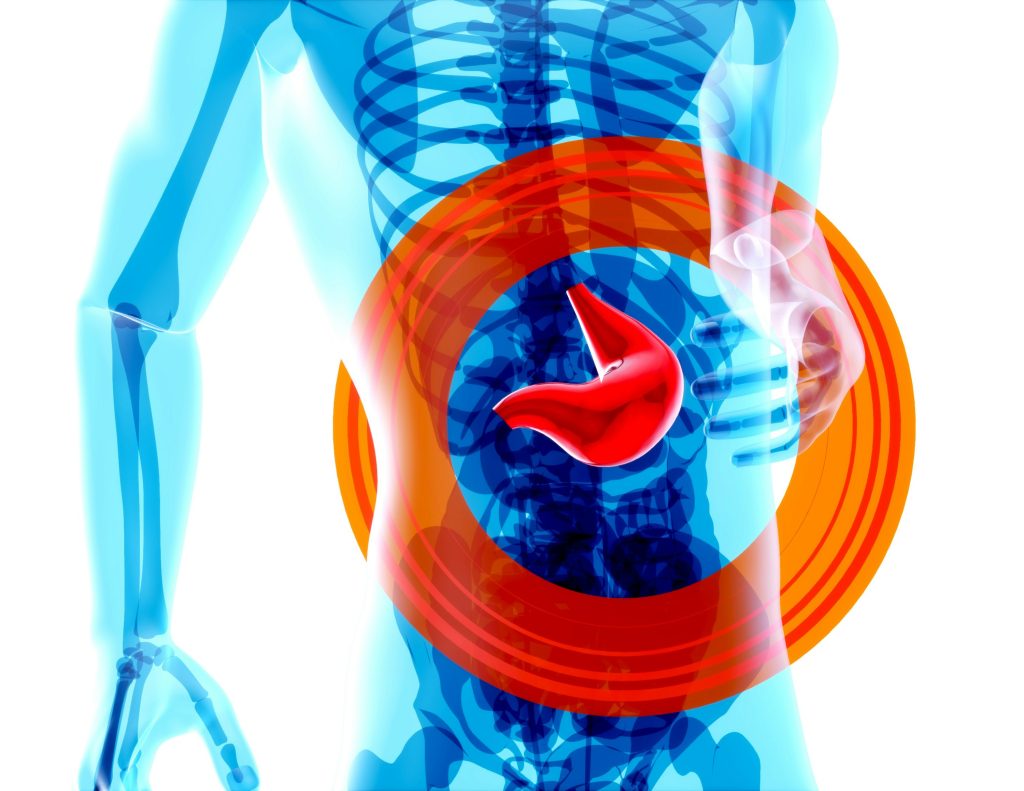You’re probably familiar with the term “detox” when it comes to cleansing your body, but have you ever thought about giving your gut a detox too? Your gut health plays a crucial role in your overall well-being, and by keeping it clean and balanced, you can experience a myriad of benefits. In this article, we’ll explore some natural ways to cleanse your gut, helping you maintain a happy and healthy digestive system. Whether you’re seeking relief from bloating, improved digestion, or increased energy levels, these tips will guide you on your journey to a happier gut. So, let’s dive in and discover the wonders of gut detoxification!
Introduction
Understanding the importance of gut health
Taking care of your gut health is essential for overall well-being. The gastrointestinal system plays a crucial role in nutrient absorption, immune function, and maintaining a healthy balance of good bacteria. When your gut is not functioning properly, it can lead to various health issues such as digestive problems, inflammation, and even mental health disorders. Therefore, it is vital to prioritize gut health and explore natural ways to cleanse your gut.
Exploring natural ways to cleanse the gut
While there are numerous products and diets claiming to detoxify your gut, it is important to focus on natural and sustainable methods. Cleansing your gut naturally involves adopting healthy lifestyle habits that support optimal digestion and promote a diverse microbiome. In this article, we will delve into the various aspects of gut health and discuss effective natural techniques to cleanse your gut and improve overall well-being.
Healthy Eating
Consume fiber-rich foods
One of the key ways to cleanse your gut naturally is by consuming a diet rich in fiber. Fiber acts as a natural cleanser for the digestive system, promoting regular bowel movements and preventing constipation. Include a variety of fruits, vegetables, whole grains, legumes, and seeds in your diet to increase your fiber intake. Some excellent sources of fiber include apples, berries, broccoli, lentils, chia seeds, and whole wheat bread. Aim to consume around 25-30 grams of fiber each day to support a healthy gut.
Include fermented foods in your diet
Fermented foods are packed with beneficial bacteria that can help cleanse and restore balance to your gut. Incorporate foods like yogurt, kimchi, sauerkraut, kefir, and kombucha into your diet. These probiotic-rich foods introduce good bacteria into your gut, which can improve digestion and boost immune function. Including a variety of fermented foods in your meals will promote a healthy gut flora and support your overall gut health.
Stay hydrated to support digestion
Drinking enough water is crucial for healthy digestion. When your body is dehydrated, it can lead to constipation and other gastrointestinal issues. Ensure you are drinking an adequate amount of water throughout the day to support optimal digestion. Additionally, consuming foods with high water content, such as cucumbers, watermelon, and celery, can contribute to your overall hydration levels and promote a healthy gut.
Limit processed and sugary foods
Processed foods can be detrimental to your gut health. They are often high in refined sugars, unhealthy fats, and artificial additives, which can disrupt the balance of your gut bacteria. Limiting your intake of processed and sugary foods is crucial for maintaining a healthy gut. Instead, focus on consuming whole, unprocessed foods that are nutrient-dense and support a diverse microbiome. Opt for fresh fruits and vegetables, lean proteins, and whole grains to provide your gut with the nourishment it needs.
Herbal Remedies
Drink herbal teas
Herbal teas are an excellent way to support your gut health. Peppermint tea, for example, has been shown to have soothing properties and can help relieve symptoms of indigestion and bloating. Ginger tea aids digestion and can reduce inflammation in the gut. Chamomile tea is known for its calming effects and can help alleviate digestive discomfort. Incorporating these herbal teas into your daily routine can provide relief and promote a healthy gut.
Take probiotic supplements
Probiotic supplements are a convenient way to introduce beneficial bacteria into your gut. Look for a high-quality probiotic supplement that contains various strains of good bacteria. These supplements can help restore balance to your gut flora, improve digestion, and support immune function. Consult with your healthcare provider to find the right probiotic supplement that suits your needs and supports your gut health goals.
Use digestive enzymes
Digestive enzymes are natural substances that help break down food and aid in the digestion process. They can support the body’s natural digestive function and ease digestive issues. If you often experience bloating, gas, or indigestion, incorporating digestive enzyme supplements into your routine may provide relief and support gut health. Be sure to choose a reputable brand and consult with a healthcare professional before starting any new supplements.
Regular Exercise
Engage in aerobic activities
Regular exercise has numerous benefits for both your physical and mental well-being, including supporting gut health. Engaging in aerobic activities such as jogging, swimming, or cycling stimulates the muscles in your digestive system, promoting regular bowel movements. Aim for at least 30 minutes of moderate aerobic exercise most days of the week to support a healthy gut.
Incorporate strength training
Adding strength training exercises to your exercise routine can also contribute to a healthy gut. Strengthening your core muscles, in particular, can improve digestion and prevent constipation. Include exercises such as planks, crunches, and squats to target your abdominal muscles and support a strong and healthy gut.
Practice yoga or pilates
Yoga and pilates are gentle forms of exercise that can have profound effects on your gut health. The combination of deep breathing, stretching, and mindful movements stimulates digestion and reduces stress levels, which can positively impact your gut. Regularly practicing yoga or pilates can help regulate bowel movements, relieve digestive discomfort, and promote a calm and healthy gut.
Intermittent Fasting
Understand the benefits of intermittent fasting
Intermittent fasting is an eating pattern that involves cycling between periods of fasting and eating. This eating strategy has gained popularity due to its potential benefits for gut health. During the fasting period, your body undergoes autophagy, a process that removes damaged cells and promotes cellular renewal. This can have a positive impact on gut health, reducing inflammation and promoting a healthy gut lining.
Try time-restricted eating
One common form of intermittent fasting is time-restricted eating. This involves restricting your eating window to a specific number of hours per day, typically between 8-10 hours. This approach allows your body to have an extended fasting period, giving your gut a break from constant digestion. Gradually decrease your eating window and monitor how your body responds to find a time-restricted eating schedule that works best for you.
Experiment with alternate day fasting
Another form of intermittent fasting is alternate day fasting, where you fast for a full 24 hours every other day. This approach can be more challenging, but it may provide additional benefits for gut health. Alternate day fasting has been shown to reduce gut inflammation, improve gut barrier function, and increase microbial diversity. It is important to consult with a healthcare professional before attempting alternate day fasting to ensure it is safe and suitable for your individual needs.
Reduce Stress
Practice stress-reducing techniques
Chronic stress can negatively impact your gut health by disrupting the balance of bacteria and impairing digestion. Therefore, managing stress is crucial for maintaining a healthy gut. Incorporate stress-reducing techniques into your daily routine, such as deep breathing exercises, meditation, or mindfulness practices. These activities can help calm your mind and body, reducing stress and supporting a healthy gut.
Get enough sleep
Quality sleep is essential for overall health, including gut health. Lack of sleep can impair digestion, weaken the immune system, and disrupt the balance of gut bacteria. Aim for a consistent sleep schedule and prioritize getting 7-9 hours of uninterrupted sleep each night. Creating a relaxing bedtime routine, avoiding electronic devices before bed, and creating a comfortable sleep environment can all contribute to a good night’s sleep and a healthy gut.
Engage in relaxing activities
Engaging in activities that you find relaxing and enjoyable can have a positive impact on your gut health. Whether it’s reading a book, taking a bath, practicing a hobby, or spending time in nature, make time for activities that help you unwind and reduce stress. These simple yet effective techniques can help support a healthy gut and improve your overall well-being.

Increase Probiotic Intake
Consume probiotic-rich foods
In addition to probiotic supplements, you can increase your probiotic intake naturally by including probiotic-rich foods in your diet. Foods like yogurt, sauerkraut, kefir, tempeh, and miso are packed with live bacteria that can benefit your gut health. Incorporate these foods into your meals and snacks to support a diverse microbiome and improve your gut flora.
Consider probiotic supplements
If you are unable to consume enough probiotic-rich foods, or if you have specific gut health concerns, probiotic supplements can be a helpful addition to your routine. Look for a high-quality supplement that contains a combination of bacterial strains and follow the recommended dosage guidelines. Probiotic supplements can help restore balance to your gut microbiota, improve digestion, and boost your overall gut health.
Avoid Antibiotics Unless Necessary
Understand the impact of antibiotics on gut health
While antibiotics can be life-saving medications, they can also disrupt the delicate balance of bacteria in your gut. Antibiotics are designed to kill bacteria, including both harmful and beneficial ones. This can result in an imbalance of gut microbiota, leading to digestive issues and potential infection. It is important to only take antibiotics when necessary and under the guidance of a healthcare professional.
Discuss alternatives with your healthcare provider
If you are prescribed antibiotics, it is important to discuss alternatives or additional measures with your healthcare provider to support your gut health. They may recommend taking probiotics alongside antibiotics to help maintain a healthy gut flora. Additionally, focusing on gut-friendly practices such as consuming a fiber-rich diet, staying hydrated, and engaging in regular exercise can help mitigate the negative effects of antibiotics on your gut health.

Stay Hydrated
Drink plenty of water
Water is essential for all bodily functions, including digestion. Staying hydrated is crucial for maintaining a healthy gut. Aim to drink at least 8 glasses (64 ounces) of water per day, or more if you engage in physical activity or live in a hot climate. Carry a reusable water bottle with you as a reminder to drink water throughout the day and keep your gut hydrated.
Include hydrating foods in your diet
In addition to drinking water, you can also increase your hydration levels by including hydrating foods in your diet. Fruits and vegetables with high water content, such as cucumbers, watermelon, oranges, and celery, can provide extra hydration and support healthy digestion. These foods are not only hydrating but also packed with essential nutrients that promote gut health.
Limit Alcohol and Caffeine
Moderate alcohol consumption
Excessive alcohol consumption can have a negative impact on gut health. Alcohol can irritate the lining of the digestive tract, disrupt the balance of gut bacteria, and lead to inflammation. It is important to moderate your alcohol intake to support a healthy gut. If you choose to drink alcohol, do so in moderation and consider opting for healthier choices such as red wine or clear spirits mixed with water or soda water.
Reduce caffeine intake
While moderate caffeine consumption can be enjoyed as part of a healthy lifestyle, excessive caffeine intake may have adverse effects on gut health. Caffeine can increase acid production in the stomach, leading to heartburn and digestive discomfort. Additionally, it can act as a diuretic, potentially dehydrating your gut. Be mindful of your caffeine intake, and if you experience digestive issues, consider reducing or eliminating caffeine from your diet to support a healthy gut.
Incorporating these natural ways to cleanse your gut into your daily routine can have a profound impact on your digestive health and overall well-being. Remember to listen to your body, make gradual changes, and consult with a healthcare professional if needed. By prioritizing your gut health through healthy eating, herbal remedies, regular exercise, intermittent fasting, stress reduction, increased probiotic intake, avoiding unnecessary antibiotics, staying hydrated, and limiting alcohol and caffeine, you can achieve a clean and thriving gut for a happier and healthier you.











